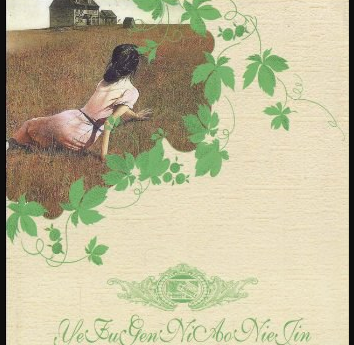The teacher talked about this work in the optional course of Russian literature, and he had read it before. Because it is a translation, it is a lot less colorful in terms of language. After all, the original text is poetry, but if you read the original text, it will take less than a week, and your understanding of Russian is indeed beyond praise.
What attracts me more about this novel is the elegant and romantic temperament of Russia. Duel, if you have really experienced the inextricable anger and heartrending pain, you will know how necessary it is, at the cost of life, in the noble name of dignity and love. Of course, the author sneers at the pompous and decadent life of the Russian aristocracy, but I think that is the absurd state of vulgar people to civilization, and the son of civilization that complements the noble life of elegant style is undoubtedly charming. The 19th century Russia in this work is outstanding
The teacher interpreted this work in class, and there are some things I don’t agree with.
The first is the critical reality of this work. Of course, there are places of dissatisfaction with society in this work (such as the absurd aristocratic life serfdom), and even every novel involving “society” will have places of conflict between individuals and society (except for literature in the period of “no conflict theory”), but I think that in this work, the tragedy of love has nothing to do with social life at all. The author also has no intention of using “love tragedy” as a weapon to satirize the society at all. At all, I think it is a persistent disease of interpreting art works under the communist ideology of China and Russia to talk about the “(noble) class”. Why do you say that? First of all, this kind of love tragedy is divorced from the times, rather than an individual case that exists in a specific period and region. Taking the plot alone, it may only be equivalent to a branch of the plot of contemporary second-rate romance novels. Of course, their identities are different, aristocratic descendants and noble ladies (once rural women), but it is undoubtedly an insult to draw the equal sign between Onegin’s feelings and the status change of Dacyana, but it can’t be said that it has nothing to do with it. I think the former “admirer” married to another family and the status is noble, which plays a subtle catalytic role in the feelings of a “Onegin” man. Another reason that was mistakenly believed to cause the tragedy of love was – as the teacher said – mutual incomprehension (at the beginning, Ao Yuda did not understand, and then Da Yuao did not understand). The necessary condition for love is my demand for love. Love, the fierce form of burning will of life, has its own period for everyone, and the tragedy of Ao and Da is precisely because of the error in the period of love demand. At first, Da fell in love with Austria and said that a young girl who was in love with Austria was burning. At that time, Austria was tired of feeling. He had just come to the quiet place from the aristocratic circle where cheap love is everywhere. Compared with the superiority of yesterday’s tryst with a lady, what was the victory of love for him? The fact is, he hasn’t rested yet. And “O” had the potential to fall in love with “Da” before. When Lensky mentioned Iorga “O”, he said he would prefer to love Daqiyana (the original book has been returned, and the specific page number has been forgotten). But he didn’t need love at that time. Then, after “Da”‘s love burns out, she will certainly not be like before because of who is waiting for love. It is normal for her to marry an officer she doesn’t love. This is in her fading period, and the fuel of love has accumulated to a certain extent after she has been silent for a long time… So there is no question of understanding here. On the contrary, if we stay in the aspect of reason, I think they both understood each other very well (the garden confession and “Da”‘s home confession), “I understand you but I can’t help you”. The origin of the thought can be traced back to the “theory of lonely individual” of the Danish philosopher Gorkegor, the originator of existentialism philosophy.
The other side is just your projection. The existence of the other party is only to witness your existence, and giving love to the other party is only to prove that you can love
Love only comes when it is needed, and searches for the person who falls in love at first sight without knowing it
